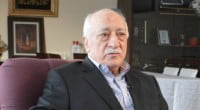The Middle East and Turkish civil Islam’s transformative influence on Islamism

Date posted: February 17, 2012
NEW DELHI — I am in New Delhi to present a paper at an international conference called “The Arab Spring: Region and India,” organized by the Center For West Asian Studies of the Jamia Millia Islamia. My paper’s title is “From Islamism to Non-Islamism: Turkish faith-based civil society’s transformative influence on Islamism as an inspiration to the Middle East.”
İHSAN YILMAZ, Friday 17 February 2012
The Turkish model of democracy, and relations between Islam, society and the state, have been debated in Arab media and among intellectuals and policymakers in the context of the Arab Spring. I have tried to analyze if, and to what extent, Turkey could be an inspiring role model for Arab countries, as well as examine the viability of the Turkish model of democracy in the Arab world. I argue that the assertively secularist Turkish political setting could definitely not be a model, but the transformation of Turkish society — vis-à-vis politics, secularism, democracy and Islam — could be an inspiring case for post-Arab Spring countries.
| This transformation from Islamism to post-Islamism and non-Islamism is the result of several factors, including the faith-based Hizmet movement and its understanding based in civil Islam, with a bottom-up, non-Jacobian, non-state-centered approach to religious and social issues. |
I told my audience that Turkey, with its successes and failures, could be an inspiration for the Middle East, but not a model. When we talk about a model, are we talking about Turkey’s record of authoritarianism, of which Middle Eastern countries have enough? Or are we talking about our oligarchic bureaucracy, deep state, internally suppressive intelligence organizations, non-transparent and unaccountable father state, statist economy, iron law oligarchy political parties and nationalism — of which the Middle East has also had enough?
The Turkish state has preferred the Sunni Turks over Alevi Turks and Kurds, and has preferred non-practicing Muslims over practicing Muslims. Alevis, Kurds and practicing Muslims — together with leftists, socialists and so on — are perceived by the establishment as the arch-enemies of Turkish nationalism. And I believe that Middle Eastern nations have had enough of that as well. So in that sense, the Turkish model could not work, or it would not be a helpful model for the Middle East. Or maybe we are talking about military involvement in Turkish politics in the years after this country was transformed into a multiparty political system, after three decades of authoritarian one-party rule. Even in the era of multiparty politics, since 1950, we have had a military coup every 10 years. The last one was on April 27, 2007, only five years ago, when the military chief of staff was directly involved in politics, declaring the military’s disapproval of any presidential candidate whose wife wears a headscarf. Turkey, with its tradition of military tutelage and direct intervention in politics, could not be a model for Middle Eastern nations because they have also had enough of that. With its Jacobian elitism, disrespect for the populace and top-down social engineering, Turkey is not an appropriate model for the Middle East.
|
I argue that the assertively secularist Turkish political setting could definitely not be a model, but the transformation of Turkish society — vis-à-vis politics, secularism, democracy and Islam — could be an inspiring case for post-Arab Spring countries. |
So, if the prevailing political scene in Turkey cannot be a model, is there anything in the Turkish experiment that is worthy of emulation? I suggest that we should look at the transformation of Turkish society vis-à-vis politics, secularism, democracy and Islam. And I believe Turkey’s experience in these areas could be inspirational for the Middle East. Middle Eastern Islamists need to analyze the formerly Islamist Justice and Development Party (AKP) leaders’ experience and how they have transformed themselves, their principles, their understanding and so on, from Islamism to post-Islamism, and even, as I call it, non-Islamism. This transformation from Islamism to post-Islamism and non-Islamism is the result of several factors, including the faith-based Hizmet movement (aka Gulen movement) and its understanding based in civil Islam, with a bottom-up, non-Jacobian, non-state-centered approach to religious and social issues. The former Islamists participated in politics, but they had Jacobian, state-centric political ideologies and in their minds — as is the case with Islamist political projects all over the world — the state was always at the center of their political process. They have always imagined that society will be transformed by top-down social engineering and state power.
In the post-9/11 world, “winning hearts and minds” has become a catchy phrase and the post-Arab Spring democracies will need to win not only “the hearts and minds” of the majority of their populations but also of ethnic and religious minorities. In this context, Turkish civil Islam’s recently developed understanding, although yet-to-be complete application, of non-Islamist Muslim democracy, where religious and ethnic minorities are treated as equal citizens, could be an inspiring case.
Source: Today’s Zaman http://www.todayszaman.com/columnist-271734-the-middle-east-and-turkish-civil-islams-transformative-influence-on–islamism.html
Tags: Arab spring | Hizmet and politics |
























